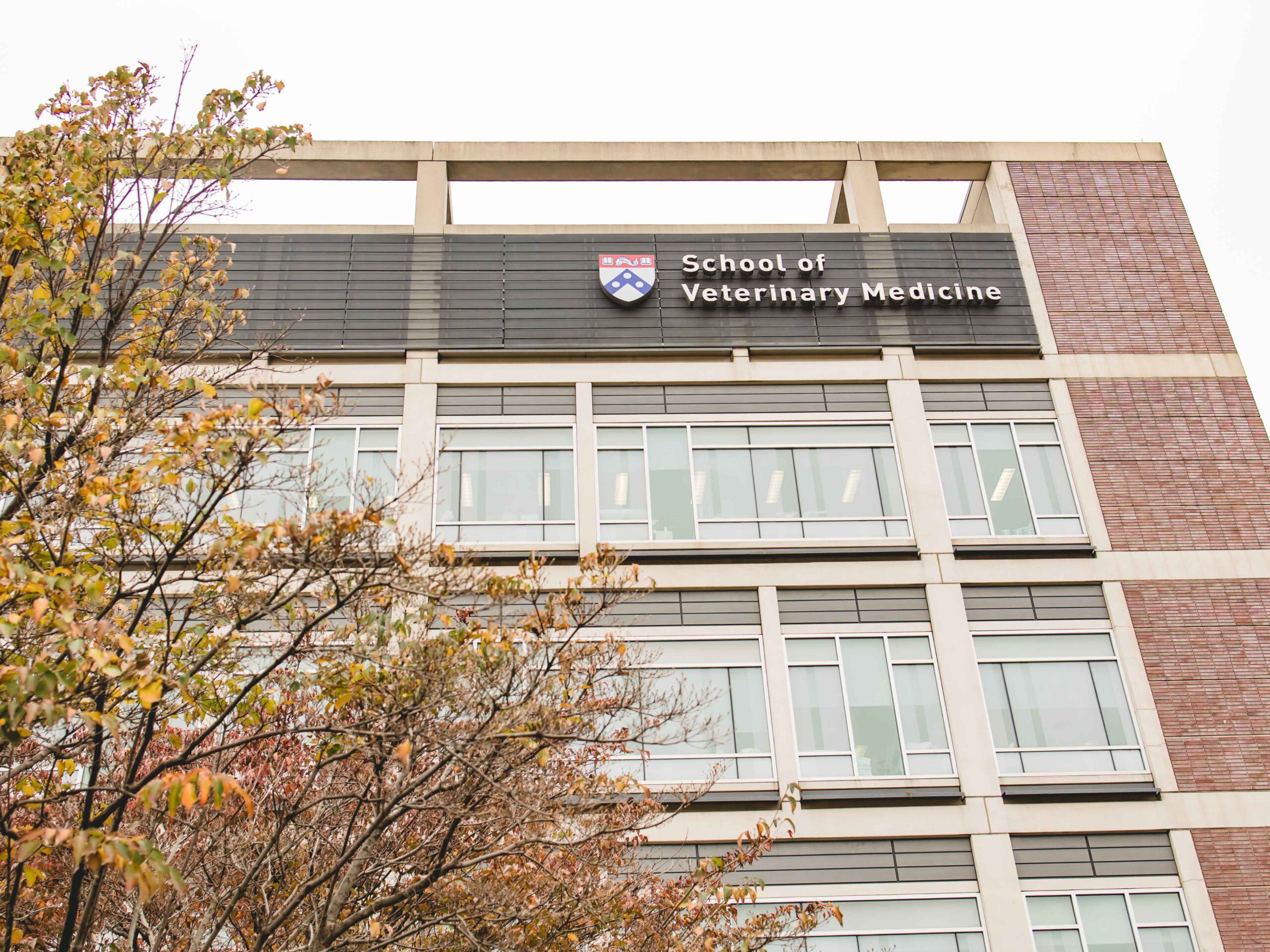British scholars who have completed their undergraduate schooling at a U.K. institution are welcome to apply for the Thouron Award, a fellowship focused on cultural exchange between the U.K. and the University of Pennsylvania. These scholars must also apply to their desired school at Penn, but if accepted and given the award, these students will have the opportunity to study at one of Penn’s graduate or post-graduate programmes and receive funding and assistance from the Thouron family and community of Scholars and Alumni.
Since 1964, the Thouron Award has supported many careers that began at The University of Pennsylvania’s School of Veterinary Medicine, commonly referred to as Penn Vet.
Penn Vet was first founded in 1884 out of Penn’s School of Medicine. As the only such program to emerge from a medical school, the specialized approach has led to generations of uniquely skilled professionals who have gone on to accomplish great things in the veterinary world. But what it is often less well-known about this institution is its especially close history to the Award and the Thouron Family.
Penn’s School of Veterinary Medicine & The Thouron Family
There is a 700-acre place located 32 miles outside Philadelphia called the George D. Widener Large Animal Hospital on the New Bolton Center Campus (opened in 1952) of the University of Pennsylvania that has a special relationship with the Thouron Award. It has been a major base for teaching, research and clinical services in veterinary medicine.
It was founded in 1964, in part with contributions from Esther du Pont Thouron, wife of Sir John Thouron — founders of the Thouron Award. Annually, this large animal veterinary hospital, one of the finest in the world, sees more than 6,000 patients and its Field Service sees more than 19,000 patients. As they say CASELOAD, CASELOAD, CASELOAD — caseloads that include horses, cattle, camelids, pigs, goats, sheep and other large animals.
In conjunction with its world-renowned small animal veterinary hospital, it’s no wonder that the University of Pennsylvania’s Veterinary School has attracted several of our British veterinary students.
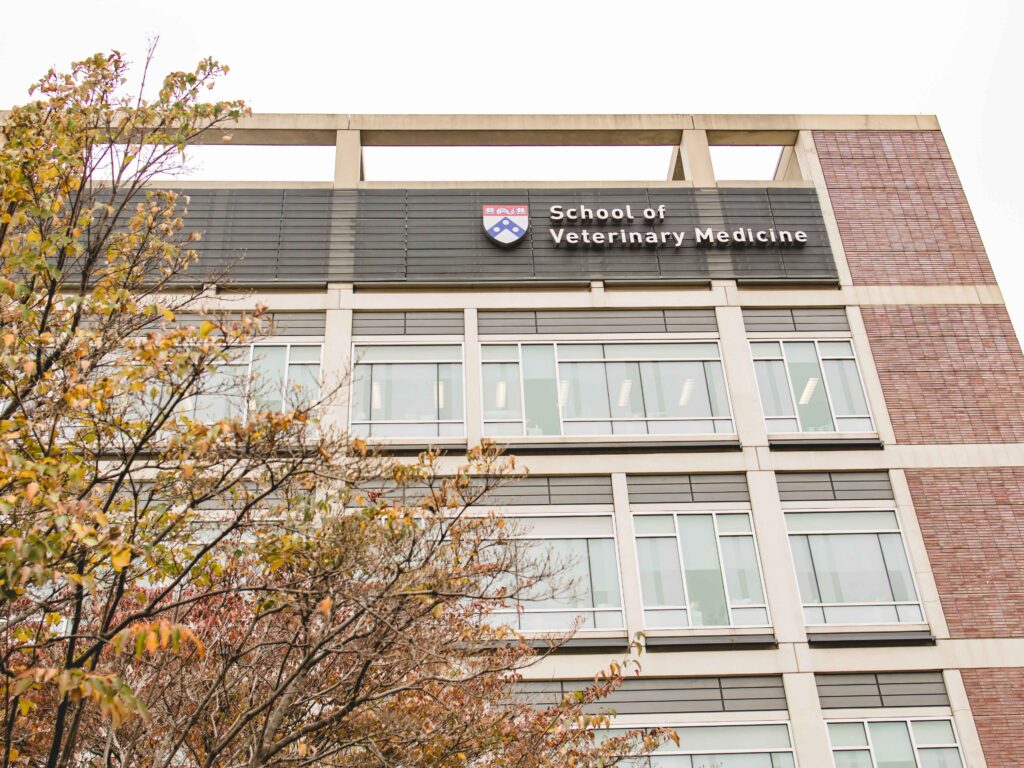
Programmes & Degrees Offered
Penn Vet offers a unique selection of programmes, including both graduate degree programmes and post-graduate fellowships and internships that offer hands-on clinical training.
MSc in Animal Welfare & Behavior
This two-year graduate programme is designed for current veterinary professionals looking to expand their skills and training, sometimes while continuing their day-to-day work. This programme is especially designed for those who need to understand the role of animal welfare and behavior when applied to other industries, such as food production, agriculture, or pharmaceutical research.
VMD, Doctorate in Veterinary Medicine
The VMD programme offers a four-year curriculum during which the first two years are spent developing core foundational knowledge and coursework, while the last two years are spent in clinical rotations, externships, and electives.
Additionally, Penn Vet offers a variety of dual degree graduate programmes for scholars who are interested in applying their knowledge across multiple fields. For example, it is common to combine your VMD education with one of the following: a PhD focused on research opportunities, a Master’s in Business Administration (MBA), a Master’s in Environmental Studies (MES), a Master’s in Public Health, a Master’s in Translational Research (MSTR), or a Master’s in Social Work (MSW).
Clinical Training, including Fellowships, Residencies, & Internships
For those who have completed their degrees and are looking for post-graduate training opportunities, the clinical training programmes offered at Penn Vet are top-notch. They currently offer residencies and internships for companion animals or large animals, and you can apply through the Veterinary Internship and Residency Matching Program (VIRMP).
Interested in Applying for The Thouron Award?
Learn more about the Award and how to Apply from the U.K. or Apply from Penn.
Featured Thouron Alumni Who Studied at Penn Vet
Kathleen Friedenberg, Br ‘66
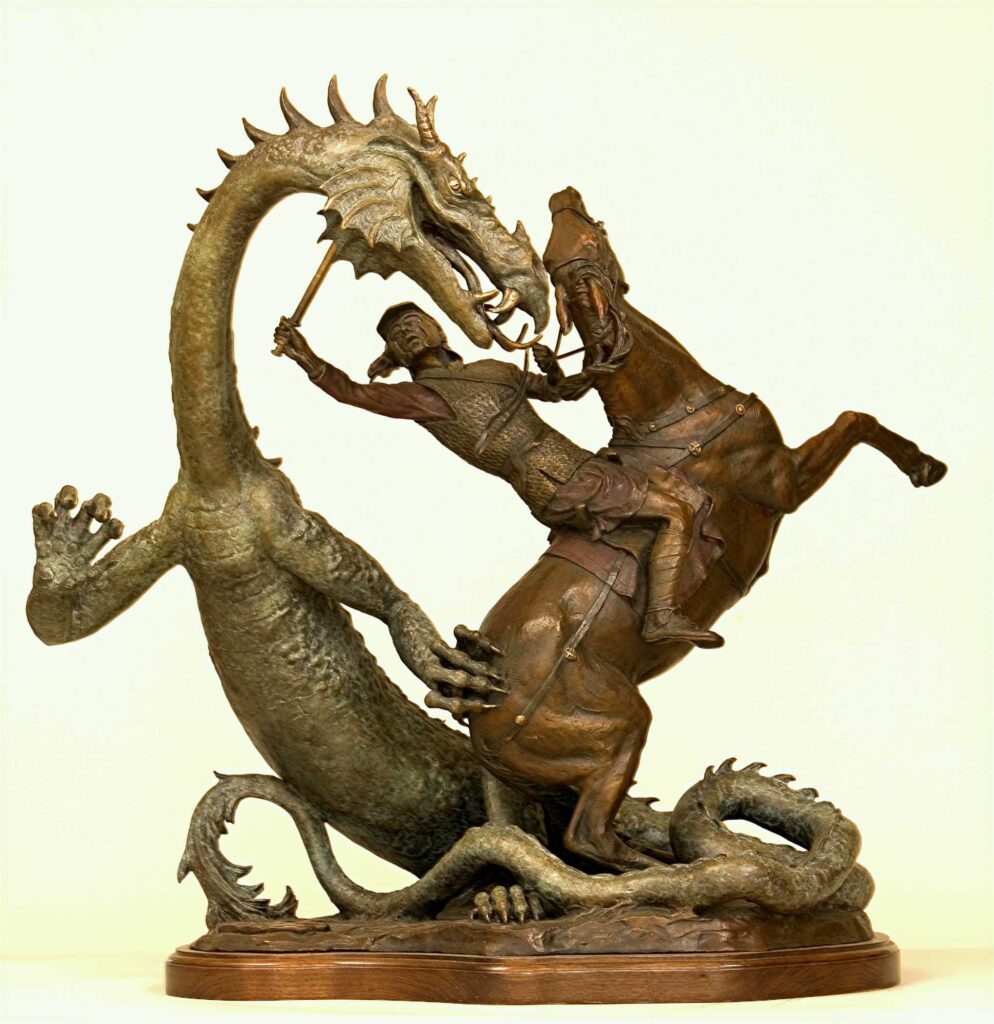
Kathie graduated from the University of London in veterinary medicine and came to the U.S. to study human and equine orthopaedics at Penn. She felt that the Thouron Scholarship was exceptionally generous during this time, as it provided not only for the cost of the education itself, but transportation, in luxury, across the Atlantic, and any other necessities — in Kathie’s case, a car to commute to New Bolton Center from the Philadelphia campus.
Kathie began sculpting at night school, but eventually, it became a full-time occupation. She continued her studies at a commercial art school and spent several years doing medical and veterinary illustration. While she may have changed her field completely from that originally intended, her veterinary knowledge formed the basis for her illustrations and sculpting.
Kathie was associated with the American Academy of Equine Art for many years and taught their sculpture of the horse workshops for over twenty years. She also taught similar workshops in various other states and became a Fellow of the National Sculpture Society.
Kathie has won numerous awards, including the Medal of Honor at the American Artists Professional League in New York. Her work has appeared in The Chronicle of the Horse, Spur, Hunt, and Horses in Art.
To this day, Kathie still greatly values the support and friendship of the Thouron family.
Paul Fine, Am’70
Paul accepted a job at a combined medical-veterinary-public health school being built in Shiraz, Iran after finishing his time Penn Vet. This was a USAID project, managed by Penn. Paul had previously travelled in Iran in 1965 and looked forward to the new opportunity. The contract was delayed for a year, which led him to apply for the Thouron Award and to study at the London School of Hygiene and Tropical Medicine (LSHTM) for a master’s degree in parasitology, with Farsi on the side (as he still thought he was on his way to Iran).
LSHTM proved very stimulating, and Paul ended up doing a PhD in epidemiology. He then joined the smallpox eradication programme in India and was offered a post-doc to work on arboviruses at University of California at Berkeley. In 1976 Paul was invited back to join the staff at LSHTM. He has remained based at LSHTM (with extended breaks at Johns Hopkins and the CDC in Atlanta), working on the epidemiology of several different infections, and running a large project on leprosy, tuberculosis and, ultimately, HIV in Malawi from 1978 to 2006.
Today, Paul is Professor of Communicable Disease Epidemiology, with his research focusing on a variety of vaccine related problems, including evaluations of safety and effectiveness, and issues surrounding the transmissibility of oral polio vaccine viruses. In recent years, Paul reconnected with the veterinary field as he has a PhD student who is evaluating the effectiveness of foot and mouth disease vaccines for sheep, in Kenya.
Charles Pinkham, Br’05
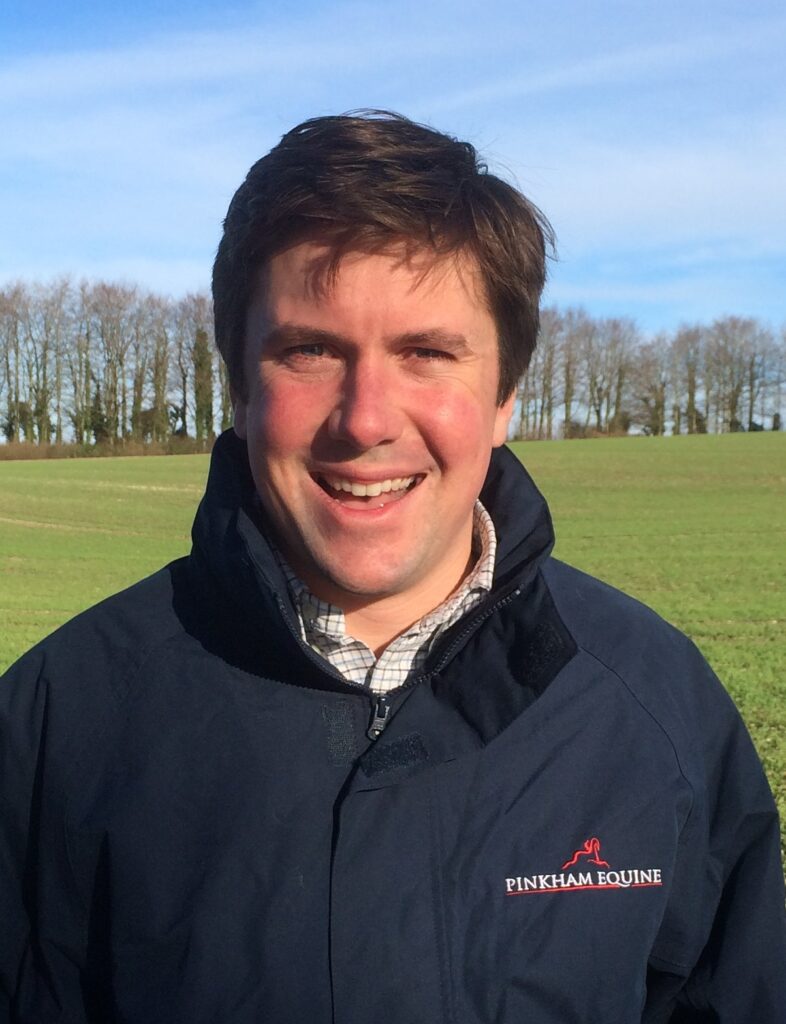
After graduating from Liverpool University in 2005, Charlie received a Thouron Award which allowed him to undertake an internship at the University of Pennsylvania Large Animal Hospital (The New Bolton Center). Whilst there, he spent time with both the equine surgery and medical teams, as well as time in the Neonatal Intensive Care Unit. After a fascinating year, he went on to work at the Goulburn Valley Equine Hospital, one of Australia’s largest equine facilities.
Charlie then went to Newmarket where he worked for the Newmarket Equine Hospital. During this time, he undertook two further periods in Australia working with the renowned Australian vet Al Simson who runs one of the country’s largest embryo transfer programmes.
In 2011, Charlie spent time in Zimbabwe working for the AWARE Trust, a wildlife conservation charity.
Charlie returned to the UK to work in Sussex in 2012 at the Arundel Equine Hospital and subsequently set up Pinkham Equine Veterinary Services in 2014 (www.pinkhamequine.com).
In 2016, Charlie set up BioTe Veterinary Laboratories with the aim of providing cost effective and efficient laboratory solutions to the veterinary industry (www.biote.vet).
Charlie is the Racehorse Owners Association veterinary adviser and is a member of the British Horse Racing Authority Veterinary Committee. He is a keen sailor and has recently undertaken a number of double handed trips around Scotland.
These profiles were updated from our 2012 Thouron Community Newsletter featuring Penn Vet Alumni.
Others Thouron Scholars & Alumni Who Have Studied Veterinary Medicine Include:
- Melvyn J. Pond, Br’66
- Peter Cantor, Br’69
- Sidney Rickets, Br’71
- Peter Beaumont, Br’72
- Doug Antczak, Am’73
- Thomas Kevin Nicholl, Br’75
- Ginny Niebuhr, Am’78
- Sue Dyson, Br’80
- Jennifer Hall, Br’85
- Jenni Ettlinger (Dixon), Br’85
- Janet Elizabeth Douglas, Br’88
- Celia Davenport (Goodall), Br’96
- Meredith Smith, Br’99
- Jennifer Stephen, Br’99
- Rebecca Terry, Br’07
- Alexa Bish-Jones Br’22
Are You a Thouron Scholar or Alumni We Missed?
If you studied at the Penn School of Veterinary Medicine or at the New Bolton Center, and we failed to include you in this list, email us to share your story. We can’t wait to hear from you!
